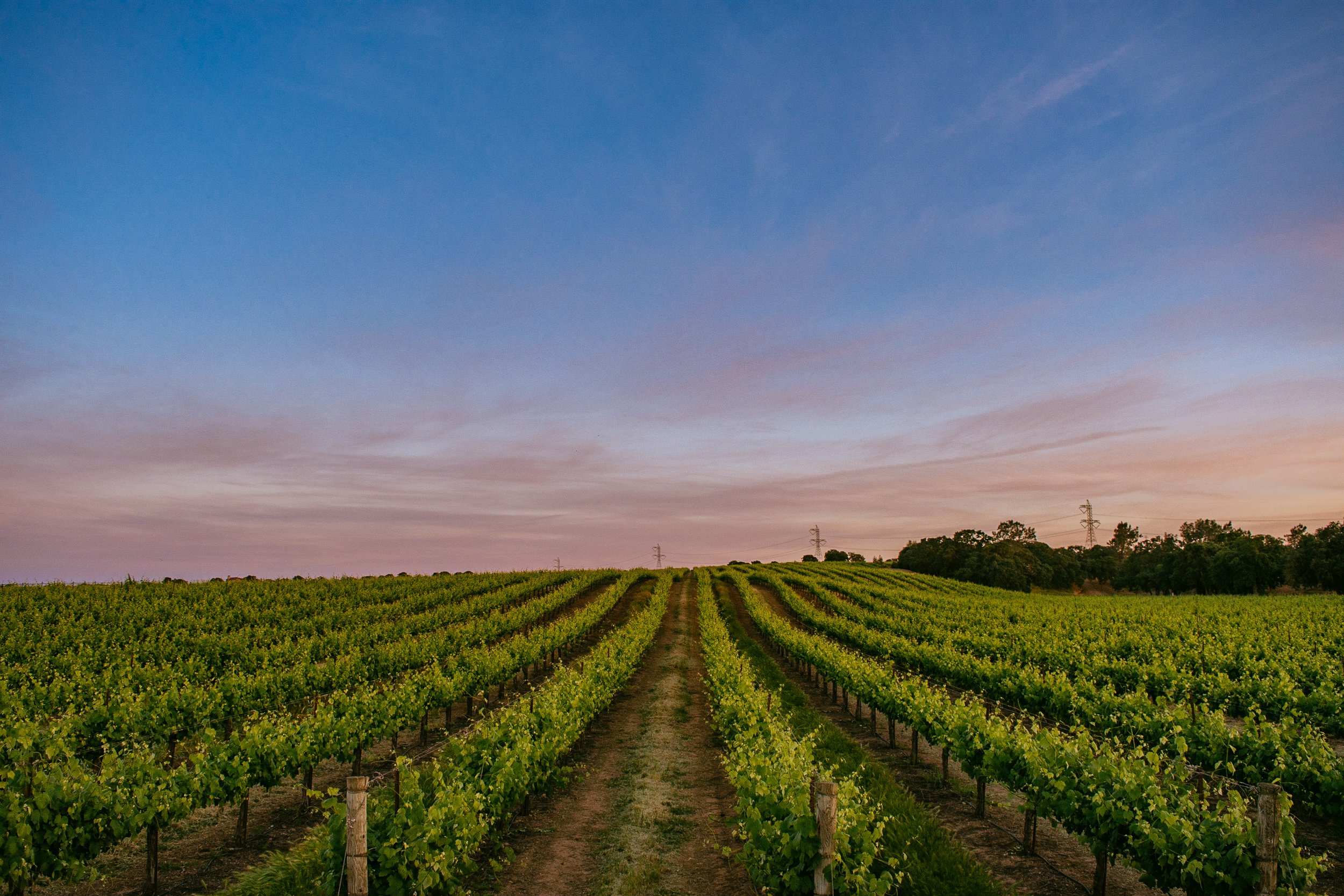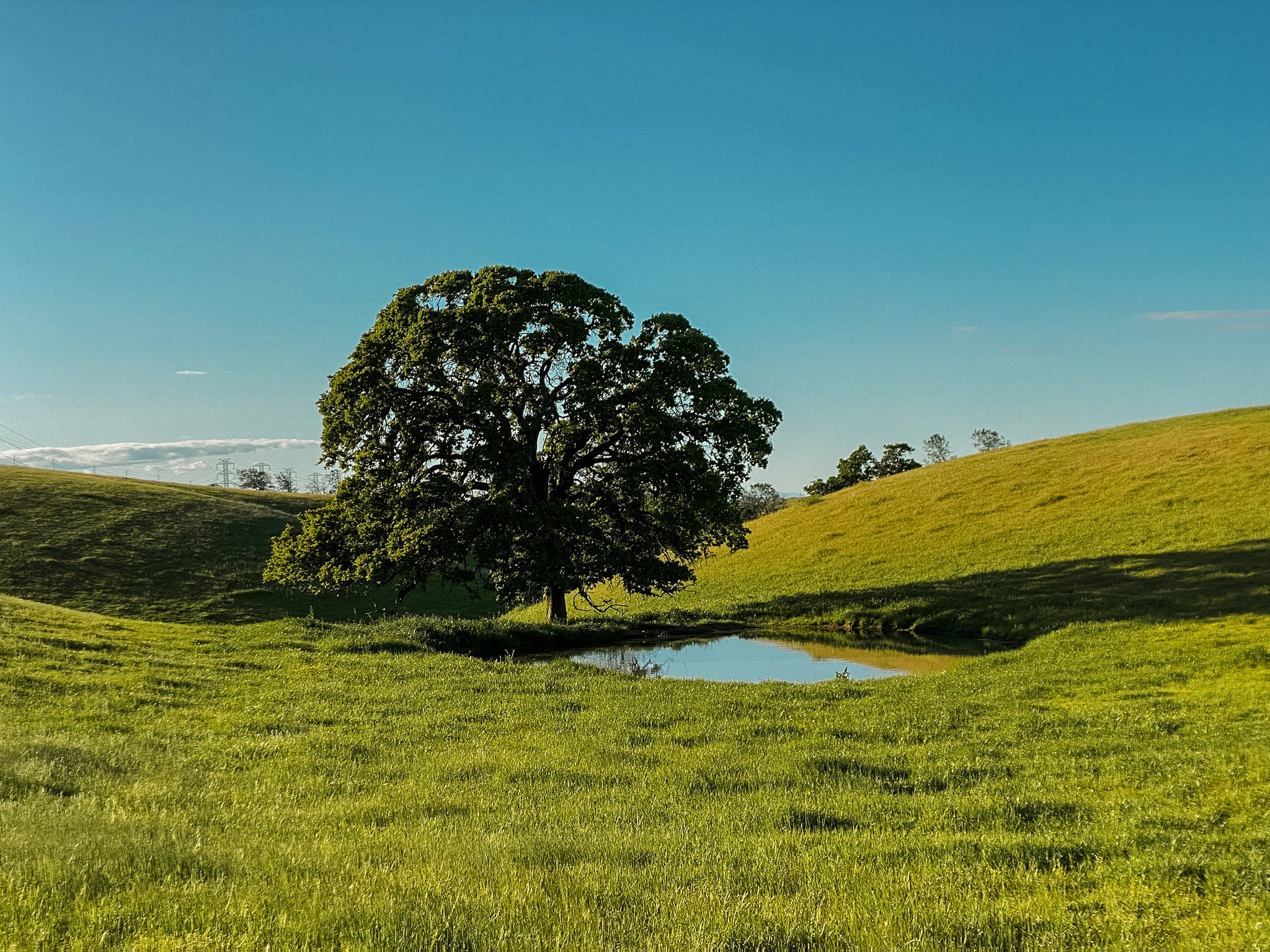
Farming with sustainability in mind
At Grindstone, sustainability is ingrained in every facet of our operation, from vineyard management and water usage to the tasting room. Through the adoption of renewable energy, water conservation, and eco-friendly packaging, our commitment to sustainability not only produces exceptional wines but also contributes to the preservation of the surrounding ecosystem and the well-being of the local community.
Certified Sustainable through CALIFORNIA RULES
As a generational farming family and proud stewards of the land, we have seen firsthand that great wine begins in a Sustainable Vineyard. We are sustainable in our business practices, irrigation, soil use, herbicide use, with solar, with groundwater retention ponds, and with the land surrounding our vineyards. For Grindstone, sustainability isn’t a box to check; it’s daily life on our farm.
We strive to improve our vineyards and the land, habitat, and animals around our vineyards through research and certification with CALIFORNIA RULES through Protected Harvest.
PREMIUM QUALITY & CERTIFIED SUSTAINABLE.
As a grower in the industry for almost 30 years, we take pride in selling premium wine grapes from our vineyards in the Dunnigan Hills AVA & home ranch. Year after year, our fruit is known for its quality & yield.
By partnering with wineries who value quality, we’re able to share the character of this special region in every bottle crafted from our grapes.
Our first vineyard on the home ranch was planted in 1997.
We now call this vineyard the Chamisal Creek Vineyard, with 25 acres of Syrah. Next was our Valley View Vineyard, 85 acres of Cabernet, and 5 acres of Petit Verdot. Our latest Home Ranch vineyard planting is the Ridge Vineyard, at the top of the ranch with 10 acres of Chardonnay and Verdejo!
Our tasting room estate vines were planted in June of 2021.
We planted eight varietals on this property. We planted old favorites: Cabernet, Shiraz, Petit Verdot, and Chardonnay & new favorites: Chenin Blanc, Grenache, Malbec, and Barbera. Our estate property is in the designated Dunnigan Hills AVA.
Groundwater Recharge
Groundwater recharge plays a crucial role in sustaining agricultural operations. By replenishing underground aquifers, it provides a reliable and accessible water source for irrigation, mitigating the impact of water scarcity during dry periods. This practice ensures the long-term viability of farming activities and provides habitat for native plants, birds and animals. Our home ranch has 11 ponds, three are full year-round, and the remaining 8 are only full during winter and wet spring months.
When we purchased the property where our tasting room is now there was no existing water storage. We decided to build a recharge pond immediately to help prevent erosion, catch runoff water from the Dunnigan Hills, and recharge our underground aquifer.
We have always prioritized water storage and groundwater recharge for our operation. Mikes father, Mike Sr., made it his mission to build reserviors on any property he farmed, as well as keeping them maintained through the wet season.
HABITAT
On our home ranch and at Grindstone we have made it a priority to maintain and build natural habitat areas. As stewards of the land our goal is to leave the land better than we found it. Around each of our ponds we have a natural habitat area. This includes native plants, grasses and heritage oaks.
This area of enhanced biodiversity supports pollinators and beneficial insects crucial for crop pollination and pest control. These habitats also contribute to soil health, water filtration, and overall ecosystem resilience, fostering a more sustainable and regenerative farming environment.
SOLAR ON THE FARM
On our home ranch west of Arbuckle, we have installed a 661-kilowatt solar system that powers our entire farm. Our pumps, irrigation, offices, and barns are all powered by our solar. On most days we generate more power than we need so, this extra generated power is added directly back to the grid.
In the last 5 years our ground mounted and roof mounted solar has generated 2,353,964 kWh!
LOW VOLUME IRRIGATION
When we first planted our Syarh vineyard in 1997 we implemented low-volume drip irrigation in vineyards. Low-volume drip irrigation optimize water usage and enhances grape production. This irrigation method delivers precise amounts of water directly to the root zones of the vines, reducing water wastage and promoting targeted hydration.
We find that controlled and consistent moisture provided by low-volume drip systems encourages deep root growth, contributing to vine resilience during dry periods. By minimizing surface wetness, this approach also helps mitigate the risk of fungal diseases, fostering a healthier vineyard environment.





















